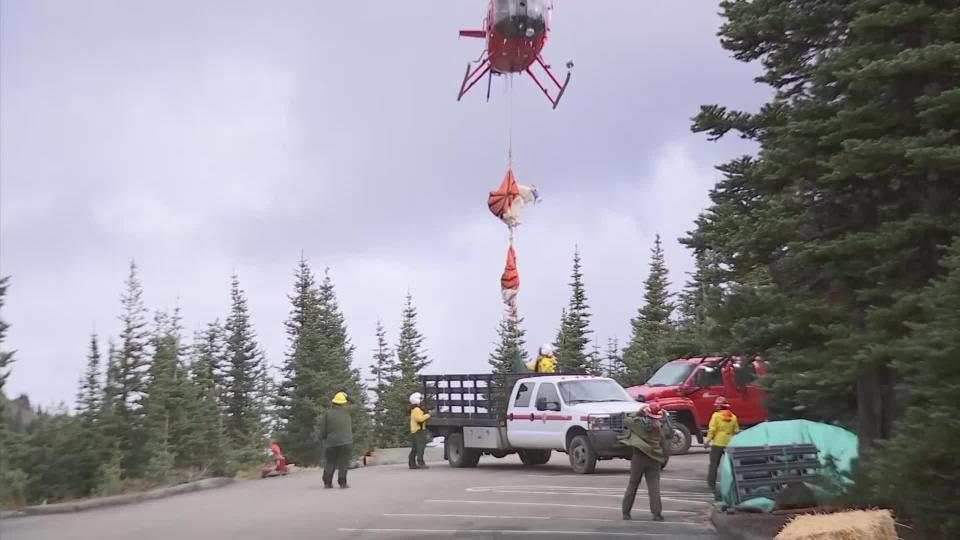Goats airlifted from national park after developing thirst for human urine
Mountain goats living in the Olympic National Park, in the US state of Washington, are being removed because they have developed a strong appetite for human urine.
With people routinely relieving themselves on various hiking trails at the park, the goats have developed an insatiable thirst for urine, which serves as a strong source of salt and minerals, according to science and technology magazine Popular Mechanics.
As a result, park authorities have begun tagging, blindfolding and airlifting the goats to the nearby forests in the North Cascades via helicopter.

Fitted with GPS collars, the goats are ferried in pairs to nine sites in the Mt Baker-Snoqualmie National Forest.
The sites should provide a more hospitable environment for the surging goat tribe, where they can roam free of human interlopers.
The US National Park Service aims to reduce the goats’ numbers dramatically, to the tune of “approximately 90 per cent of the projected 2018 mountain goat population, or approximately 625 to 675 mountain goats,” according to an Environmental Impact Statement.
With minerals necessary for their diet scant, the goats have developed a strong predilection for human urine and sweat, which they can find in abundance while foraging through the park’s 3734 square kilometre domain.

The NPS maintains, however, that urine has an adverse effect on the goat’s behaviour.
“Mountain goats can be a nuisance along trails and around wilderness campsites where they persistently seek salt and minerals from human urine, packs, and sweat on clothing,” they said.
“They often paw and dig areas on the ground where hikers have urinated or disposed of cooking wastewater.”
Goats that “paw and dig” at the earth have posed a detriment to the environment, according to the NPS.
Unrelated to lapping up urine are the general safety concerns of interacting with a swelling goat herd.

In 2010, a hiker was gored to death at the park.
“The nature of mountain goat-human interactions can vary widely, such as humans observing mountain goats from several hundred metres away across a ridge, mountain goats approaching visitors, hazing events and hazardous interactions such as the October 2010 fatality,” the report states.
Authorities cannot implement fertility control, largely because the animals are so hard to corral.
There’s also no approved contraceptive available to quell their birthrates.


